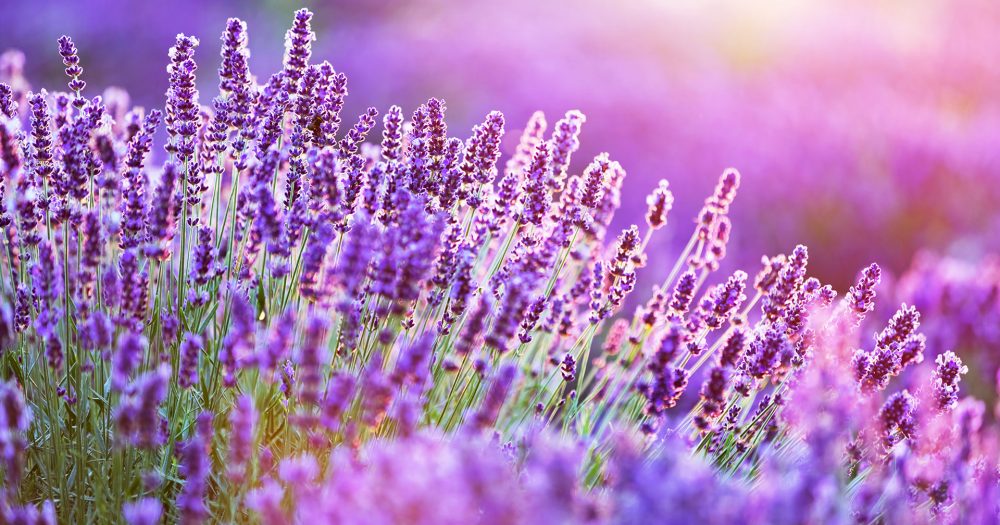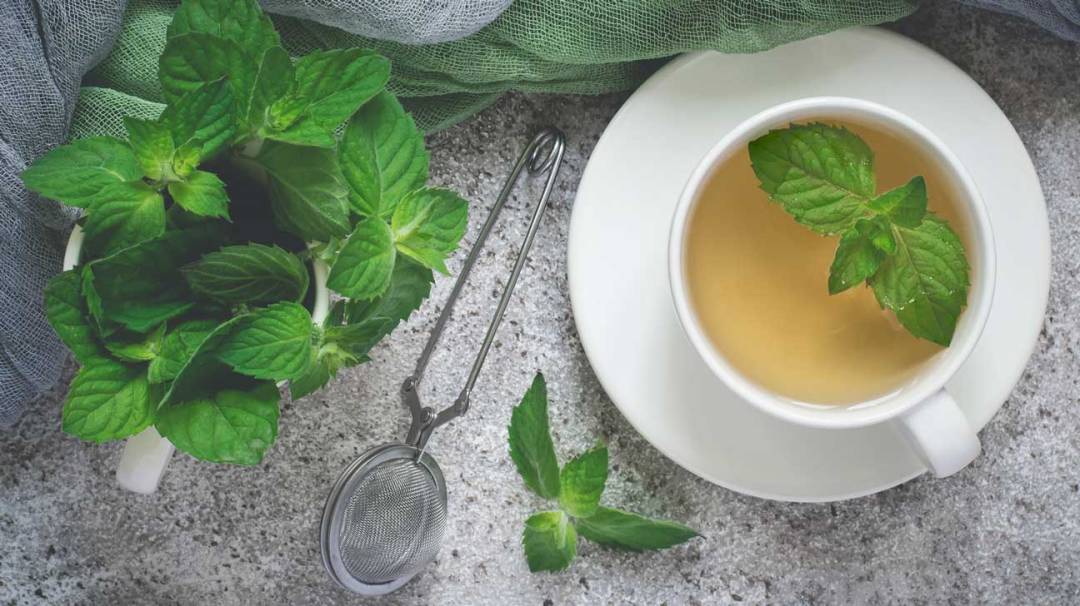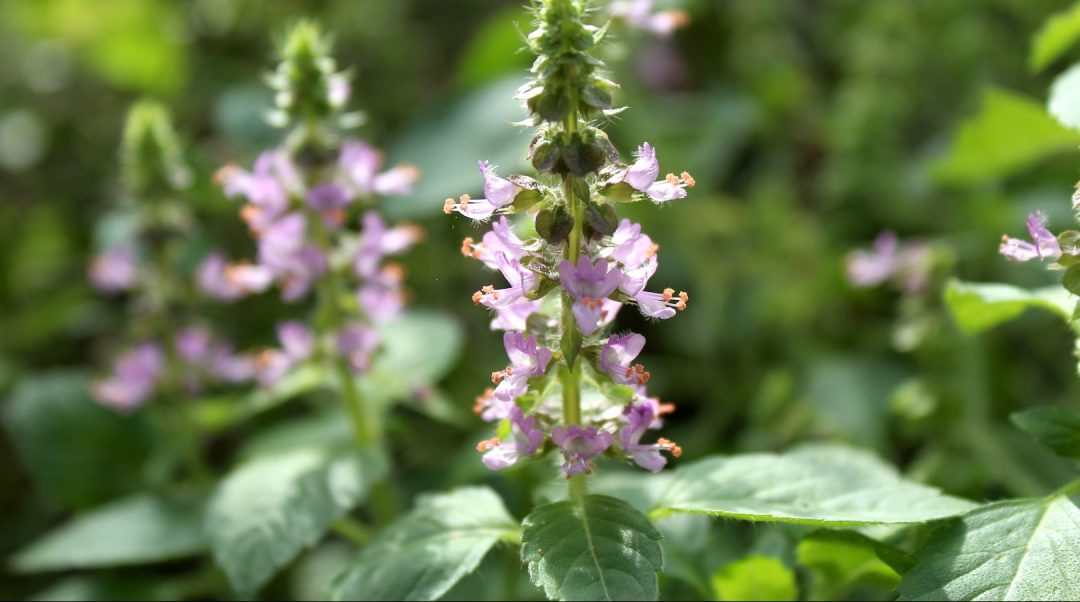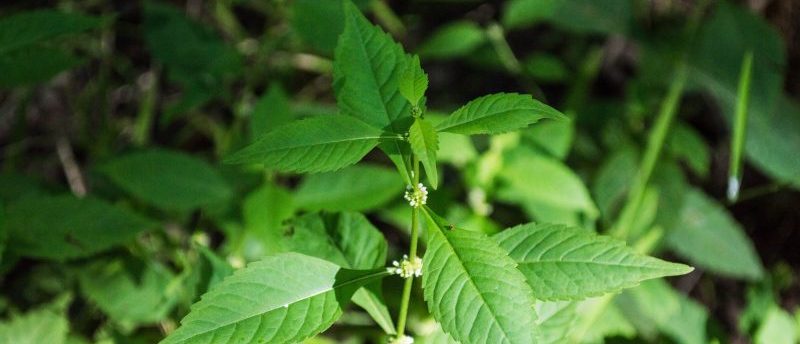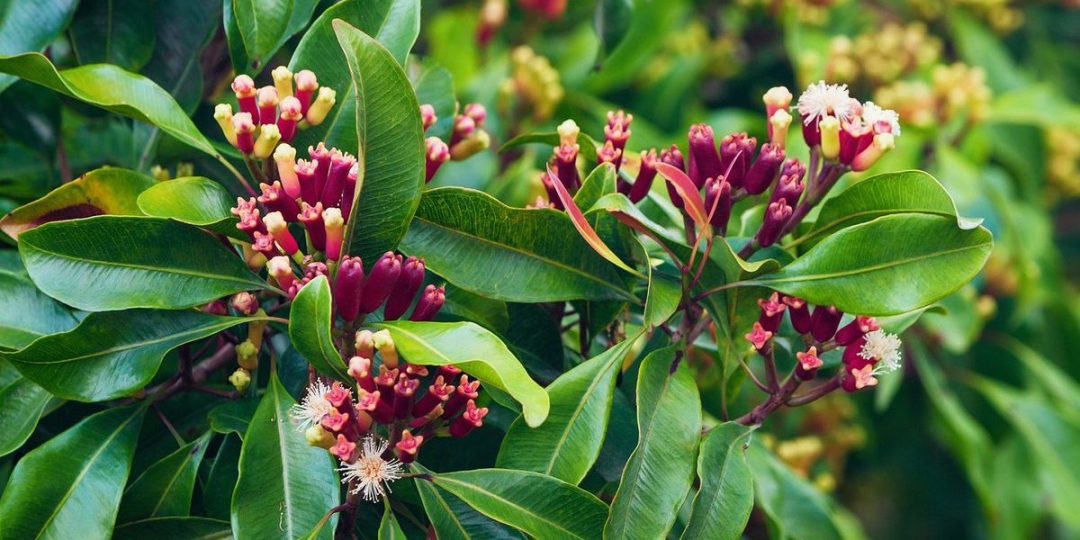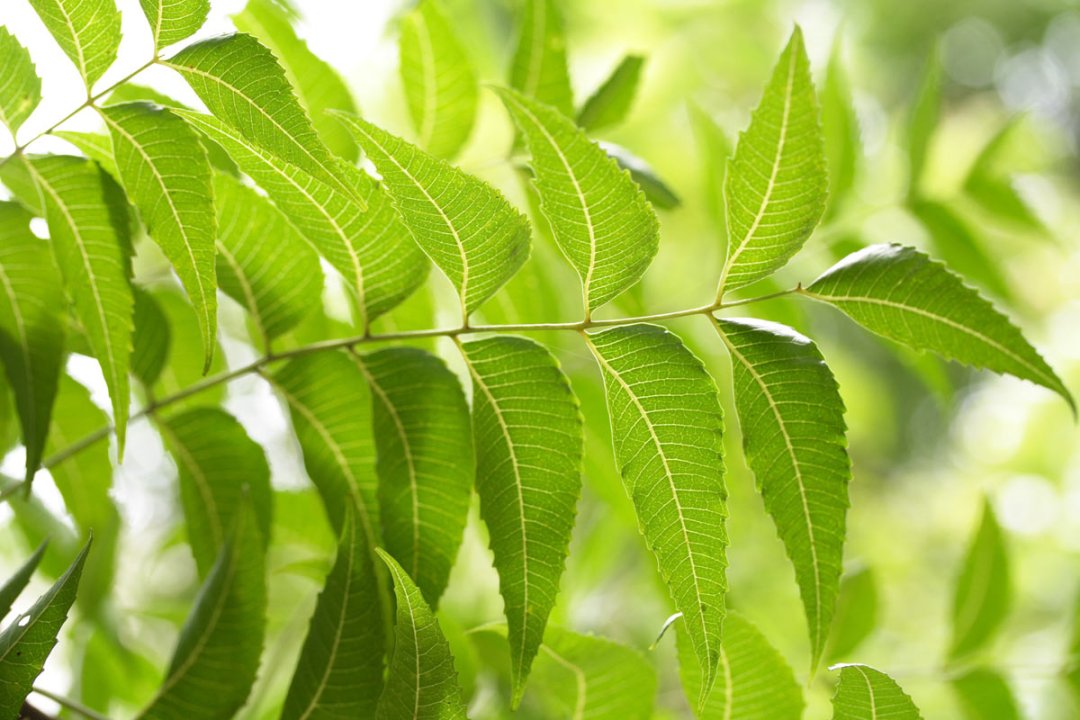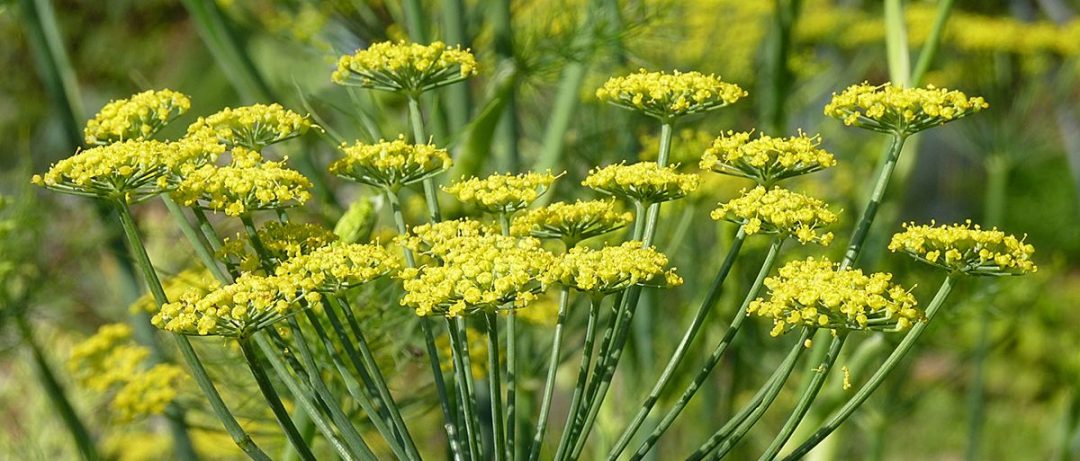The leaves of passion flower have been shown to make a nonaddictive sedative that relaxes the nervous system. Passion flower seems especially helpful when physical or mental strain results in insomnia or stress.
Lavender Benefits: Snapshot
For centuries, lavender has been used as a general tonic, sedative, antispasmodic, diuretic, digestive aid, and gas remedy. Lavender tea and essential oil are prescribed to treat common minor ailments such as insomnia, nervousness, fatigue, headaches, nausea, and gas. Its aroma helps to stimulate mental processes to help patients with dementia and alleviate mild to moderate depression.
Peppermint Benefits: Snapshot
Mint relaxes the peripheral blood vessels, calms smooth muscle spasms, dries dampness, expels phlegm, and clears the head. It is regarded as an excellent remedy for stomach cramps due to its ability to reduce hypercontractability of the intestinal muscles. It is often added to formulas using laxative herbs, such as cascara sagrada, to prevent intestinal gripe. Peppermint is considered the strongest mint medicinally, though the other mints have medicinal benefit as well. Peppermint has activity against a wide range of pathogens including streptococcus, staphylococcus, and candida.
Tulsi Benefits: Snapshot
Tulsi (Holy Basil) comes from India, where it is revered as the herb sacred to the goddess Lakshmi, wife of Vishnu, the god who preserves life. Tulsi means "matchless," and the herb has very important medicinal properties - notably its ability to reduce blood sugar levels. In Indian herbal medicine, holy basil has a wide … Continue reading Tulsi Benefits: Snapshot
Bugleweed Benefits: Snapshot
Bugleweed has sedative properties and is mainly used to treat an overactive thyroid gland and the racing heartbeat that often accompanies this condition
Cinnamon Benefits: Snapshot
Cinnamon has been traditionally taken as a warming herb for "cold" conditions, often in combination with ginger. The herb stimulates the circulation, especially to the fingers and toes. Cinnamon is also a traditional remedy for digestive problems, such as nausea, vomiting, and diarrhoea, as well as for aching muscles and other symptoms of viral conditions such as colds.
Cloves Benefits: Snapshot
Cloves may protect the liver, reduce inflammation of the mouth and pharynx, and help with dental pain when used as a topical anesthetic. In ayurvedic medicine it is used for halitosis, eye disease, toothache, flatulence, colic, and anorexia.
Licorice Benefits: Snapshot
Licorice stimulates interferon production, soothes irritated mucous membranes, restores pituitary activity, and helps normalize the function of glands and organs. It also helps induce feelings of calmness, peace, and harmony.
Neem Leaf Benefits: Snapshot
One of the most essential detoxicants in Ayurvedic medicine and is a potent febrifuge, long used to treat intermittent fevers and recently shown to contain active anti-malarial compounds. Every part of the neem tree may be used medicinally (3). Botanical Name Azadirachta indica Part Used Leaf Common Names nim, margosa, bead tree, holy tree, Indian … Continue reading Neem Leaf Benefits: Snapshot
Fennel Benefits: Snapshot
The primary use of fennel seeds is to relieve bloating, but they also settle stomach pain, stimulate the appetite, and are diuretic and anti-inflammatory


